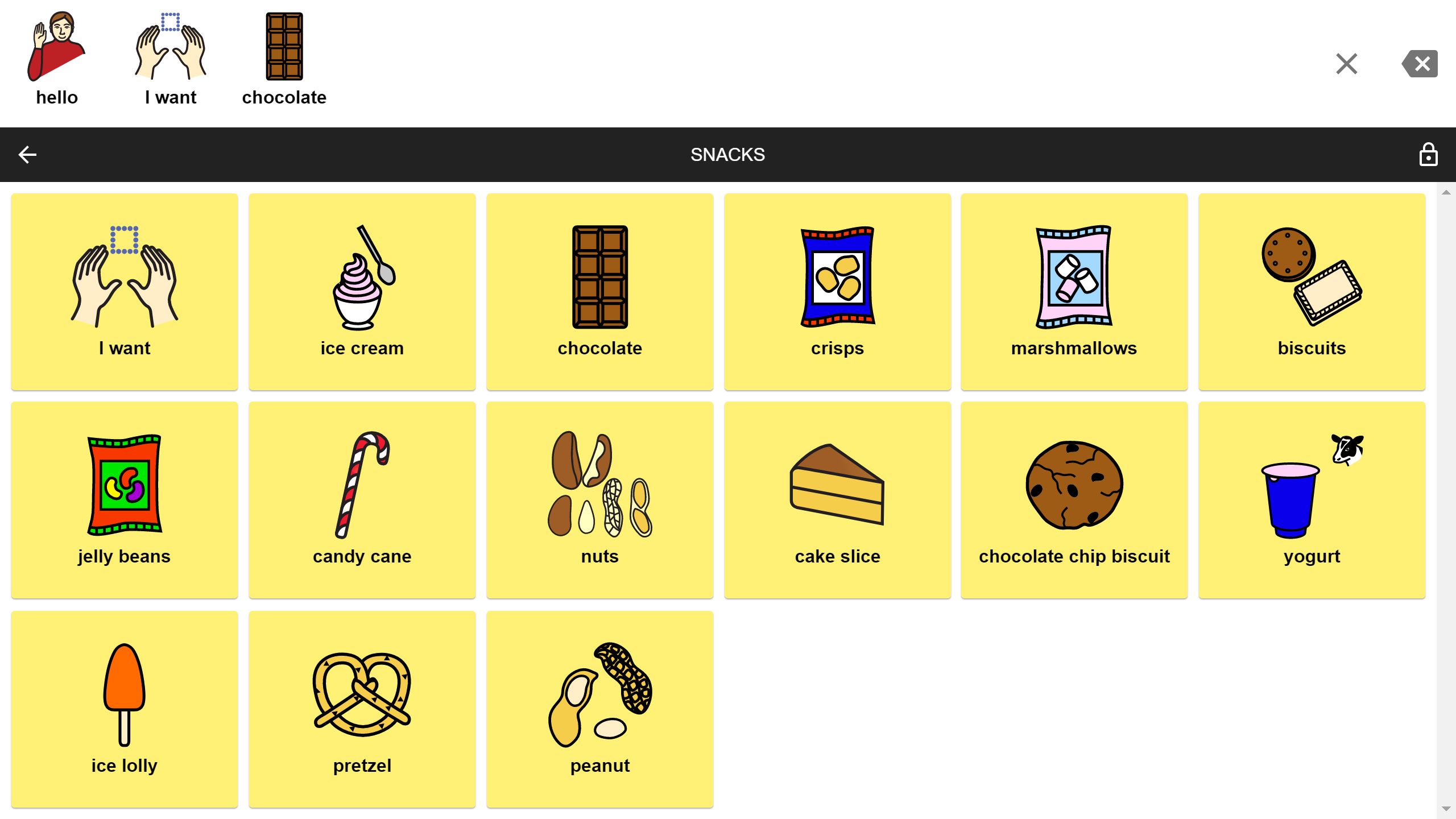
E.A. Draffan
Global Symbols, Cboard and Jellow on show at the UN in Geneva
On March 7/8 2019 we had a stand in the UN E building during the 40th session of the Human Rights Council We had a chance to showcase both the UNICEF sponsored cBoard and Jellow apps as well as our own symbol set repository.
This meant we met many interesting people from around the world thanks to an invitation from UNICEF in partnership with the Permanent Mission of the Republic of Bulgaria and other International Organisations in Geneva.
Twenty-one companies where showcasing their assistive technologies and services from alternative ebook organisations such as Bookshare and eKitabu to innovative wheelchairs, prosthetics and apps. Here I describe some of the AAC apps and services that also had stands.
The Livox app, has been designed to work on Android tablets to help children to develop speech and language skills uses machine learning to adapt to the child’s situation and user skills. “Through artificial intelligence Livox will learn user’s routine and bring information according with the use based on time and location.” The company is based in Brazil but its founder Carlos Pereira and his team have now ensured that it is available world wide in many languages for an annual subscription.
Compusult are working with the University of Hertfordshire to develop Kasper into an assistive intelligent robot to support children with social behaviour difficulties such as autism. Much research has been undertaken to show the impact Kasper has had on children and the most recent publications are available from the Robot House at the University.
 When we showed Cboard, we illustrated how it uses open symbols and open board format and also the Jellow app with its lovely open Jellow symbols symbols. Both teams aim to see how speech and language skills can develop as a result of using their app. This type of reporting and data collection can be found in an article about logging data by CoughDrop
When we showed Cboard, we illustrated how it uses open symbols and open board format and also the Jellow app with its lovely open Jellow symbols symbols. Both teams aim to see how speech and language skills can develop as a result of using their app. This type of reporting and data collection can be found in an article about logging data by CoughDrop
ProjectVive from the USA were showing how it is possible to 3D print the hardware that makes any tablet a usable AAC device with mounting kits, switches and amplifiers.
There were many more examples companies supporting those with communication difficulties including AbleNet, BrainControl AAC, ActiveCommunication and Voiceitt who was showing how speech recognition used with non-standard speech is possible. The system enables someone with poor articulation or dysarthria to turn their speech into text. There are examples of beta testers using the technology that has been funded by an EU Horizon 2020 programme.